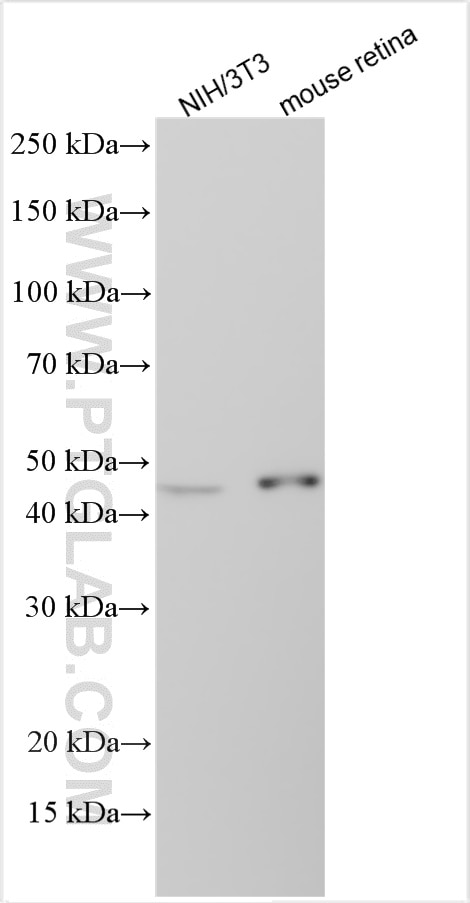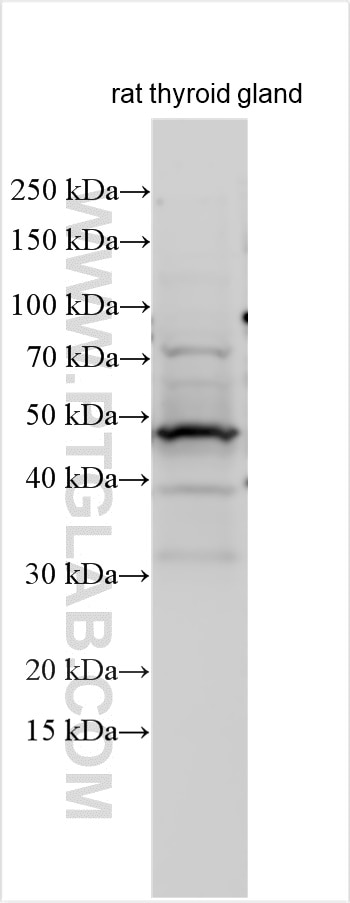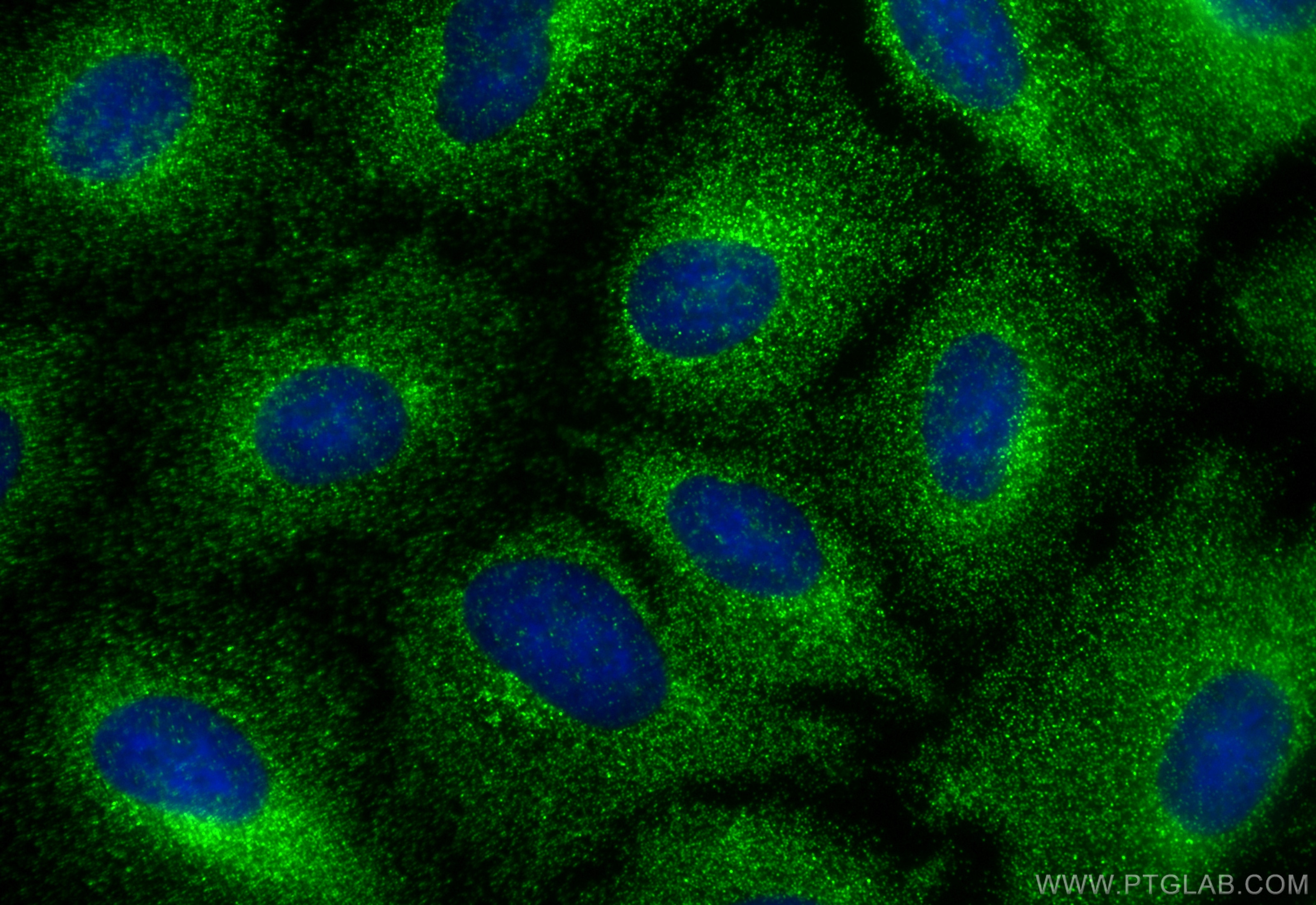Tested Applications
| Positive WB detected in | NIH/3T3 cells, rat thyroid gland tissue, mouse retina tissue |
| Positive IF/ICC detected in | A549 cells |
Recommended dilution
| Application | Dilution |
|---|---|
| Western Blot (WB) | WB : 1:500-1:1000 |
| Immunofluorescence (IF)/ICC | IF/ICC : 1:200-1:800 |
| It is recommended that this reagent should be titrated in each testing system to obtain optimal results. | |
| Sample-dependent, Check data in validation data gallery. | |
Product Information
24306-1-AP targets ISLR in WB, IF/ICC, ELISA applications and shows reactivity with mouse samples.
| Tested Reactivity | mouse |
| Host / Isotype | Rabbit / IgG |
| Class | Polyclonal |
| Type | Antibody |
| Immunogen | ISLR fusion protein Ag19446 Predict reactive species |
| Full Name | immunoglobulin superfamily containing leucine-rich repeat |
| Calculated Molecular Weight | 428 aa, 46 kDa |
| Observed Molecular Weight | 44-46 kDa |
| GenBank Accession Number | BC022478 |
| Gene Symbol | ISLR |
| Gene ID (NCBI) | 3671 |
| RRID | AB_3085729 |
| Conjugate | Unconjugated |
| Form | Liquid |
| Purification Method | Antigen affinity purification |
| UNIPROT ID | O14498 |
| Storage Buffer | PBS with 0.02% sodium azide and 50% glycerol , pH 7.3 |
| Storage Conditions | Store at -20°C. Stable for one year after shipment. Aliquoting is unnecessary for -20oC storage. 20ul sizes contain 0.1% BSA. |
Background Information
The Immunoglobulin superfamily containing leucine-rich repeat protein(ISLR), is involved in various biological events, such as embryonic development, Gaucher's disease, and replicative senescence of fibroblasts in some organs, including the heart, pancreas, and bone marrow. ISLR, also known as meflin, is a newly discovered marker of mesenchymal stem cells, which is involved in pathological fibrosis and the cancer microenvironment. (PMID: 34713300)
Protocols
| Product Specific Protocols | |
|---|---|
| WB protocol for ISLR antibody 24306-1-AP | Download protocol |
| IF protocol for ISLR antibody 24306-1-AP | Download protocol |
| Standard Protocols | |
|---|---|
| Click here to view our Standard Protocols |







